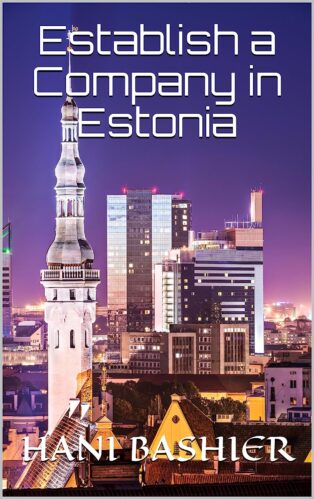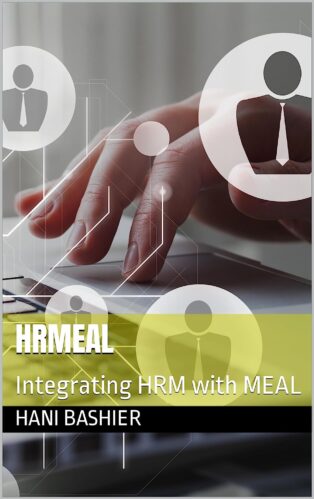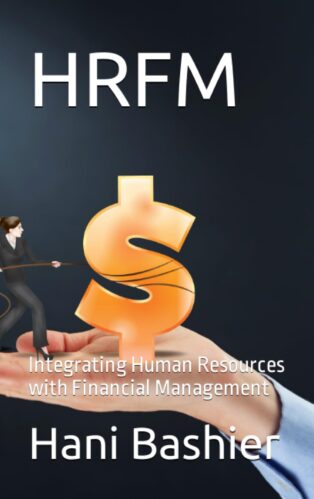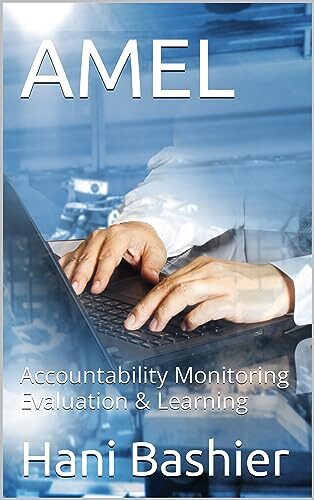Integrating Monitoring, Evaluation, Accountability, and Learning (MEAL) with Human Resources Management: A Winning Strategy
Effective Monitoring, Evaluation, Accountability, and Learning (MEAL) practices and efficient Human Resources Management (HRM) are both critical components of successful organizations in the development and humanitarian sectors. Integrating MEAL and HRM can lead to a winning strategy that fosters continuous learning, improvement, and adaptation. This comprehensive guide will outline key considerations for integrating MEAL and HRM, including:
- Aligning MEAL and HRM objectives and strategies
- Fostering a culture of learning and accountability
- Ensuring effective communication and collaboration between MEAL and HRM teams
- Building MEAL capacities within the HRM team
- Developing performance management systems that support MEAL objectives
- Integrating MEAL and HRM in recruitment and selection processes
- Promoting staff well-being and retention through MEAL
- Leveraging technology for MEAL and HRM integration
- Evaluating the effectiveness of MEAL and HRM integration
- Creating opportunities for continuous improvement and adaptation
1. Aligning MEAL and HRM Objectives and Strategies
To effectively integrate MEAL and HRM, it is essential to align their objectives and strategies. This ensures that both functions work towards the same organizational goals and support each other in achieving them. Key recommendations for aligning MEAL and HRM objectives and strategies include:
- Reviewing organizational strategies and goals to identify areas of convergence and synergy between MEAL and HRM.
- Collaborating with key stakeholders, including senior management, project teams, and external partners, to develop joint objectives and strategies that leverage the strengths of both MEAL and HRM.
- Establishing clear and measurable indicators for success that can be monitored and evaluated by both MEAL and HRM teams.
- Developing joint action plans and roadmaps, outlining the specific activities, resources, and timelines required to achieve joint objectives and strategies.
2. Fostering a Culture of Learning and Accountability
A culture of learning and accountability is crucial for the successful integration of MEAL and HRM. By promoting a supportive environment in which staff are encouraged to learn from their experiences, share knowledge, and hold each other accountable, organizations can enhance the effectiveness of both MEAL and HRM practices. Key recommendations for fostering a culture of learning and accountability include:
- Encouraging open and transparent communication among staff, promoting the sharing of successes, challenges, and lessons learned.
- Recognizing and rewarding staff who demonstrate a commitment to learning, accountability, and continuous improvement.
- Organizing regular learning events and workshops, such as brown bag lunches, webinars, or peer learning sessions, to share knowledge and best practices on MEAL and HRM topics.
- Creating safe spaces for staff to discuss and learn from their failures, challenges, and areas for improvement.
3. Ensuring Effective Communication and Collaboration between MEAL and HRM Teams
Effective communication and collaboration between MEAL and HRM teams are critical for the successful integration of these functions. This enables both teams to share information, resources, and expertise, and to work together more efficiently and effectively. Key recommendations for ensuring effective communication and collaboration between MEAL and HRM teams include:
- Establishing regular communication channels and forums, such as joint meetings, email groups, and online collaboration platforms, to facilitate information sharing and coordination between MEAL and HRM teams.
- Developing shared tools and resources, such as joint work plans, performance management systems, and learning materials, to support collaboration and integration between MEAL and HRM functions.
- Promoting cross-functional teamwork and collaboration, by organizing joint training sessions, workshops, and team-building activities, and by encouraging staff to work together on joint projects and initiatives.
- Encouraging a culture of mutual respect, trust, and support among MEAL and HRM teams, recognizing that both functions have unique expertise, perspectives, and contributions to offer.
4. Building MEAL Capacities within the HRM Team
To effectively integrate MEAL and HRM, it is essential to build MEAL capacities within the HRM team. This ensures that HRM staff have the skills, knowledge, and competencies required to effectively support and contribute to MEAL initiatives. Key recommendations for building MEAL capacities within the HRM team include:
- Conducting a training needs assessment to identify the specific MEAL skills and competencies required by HRM staff.
- Developing and implementing tailored training and capacity-building programs on MEAL topics, such as results-based management, indicator development, data collection and analysis, and participatory evaluation techniques.
- Providing HRM staff with opportunities for professional development, such as workshops, seminars, and conferences, and supporting their participation in relevant MEAL networks and communities of practice.
- Establishing mentorship, coaching, and peer support programs to facilitate knowledge sharing and learning between MEAL and HRM staff.
5. Developing Performance Management Systems that Support MEAL Objectives
Performancemanagement systems play a crucial role in integrating MEAL and HRM, as they enable organizations to monitor and evaluate staff performance in relation to MEAL objectives. By developing performance management systems that support MEAL objectives, organizations can enhance staff accountability, learning, and continuous improvement. Key recommendations for developing performance management systems that support MEAL objectives include:
- Aligning staff performance indicators and targets with organizational MEAL objectives and strategies.
- Incorporating MEAL competencies and skills into job descriptions, performance appraisals, and professional development plans.
- Developing feedback mechanisms that enable staff to reflect on their performance, identify areas for improvement, and develop action plans to address these.
- Ensuring that performance management processes are transparent, participatory, and inclusive, involving staff at all levels in the design, implementation, and review of performance management systems.
6. Integrating MEAL and HRM in Recruitment and Selection Processes
Recruitment and selection processes play a critical role in ensuring that organizations have the right staff with the appropriate skills and competencies to effectively implement MEAL and HRM practices. By integrating MEAL and HRM in recruitment and selection processes, organizations can identify and attract candidates who are committed to learning, accountability, and continuous improvement. Key recommendations for integrating MEAL and HRM in recruitment and selection processes include:
- Incorporating MEAL skills and competencies into job advertisements, candidate profiles, and selection criteria.
- Designing recruitment and selection processes that assess candidates’ MEAL knowledge, skills, and experience, such as competency-based interviews, practical exercises, and case studies.
- Ensuring that MEAL and HRM staff are involved in the recruitment and selection process, providing input and guidance on candidate suitability and fit.
- Promoting diversity and inclusion in recruitment and selection processes, recognizing the value of diverse perspectives and experiences in enhancing the effectiveness of MEAL and HRM practices.
7. Promoting Staff Well-being and Retention through MEAL
Staff well-being and retention are critical factors for the successful integration of MEAL and HRM, as they ensure that organizations can maintain a skilled, experienced, and motivated workforce. By promoting staff well-being and retention through MEAL, organizations can create a supportive and empowering work environment that encourages staff to learn, grow, and achieve their full potential. Key recommendations for promoting staff well-being and retention through MEAL include:
- Regularly monitoring and evaluating staff well-being, satisfaction, and engagement through surveys, focus groups, and other participatory methods.
- Identifying and addressing the root causes of staff turnover, burnout, and dissatisfaction, using MEAL data and insights to inform HRM policies and practices.
- Developing and implementing staff well-being and retention strategies, such as flexible working arrangements, employee assistance programs, and professional development opportunities.
- Recognizing and celebrating staff achievements and contributions, using MEAL data and stories to highlight the impact of their work on organizational success.
8. Leveraging Technology for MEAL and HRM Integration
Technology can play a crucial role in facilitating the integration of MEAL and HRM, by providing tools and platforms that enable organizations to efficiently collect, analyze, and share data and information. By leveraging technology for MEAL and HRM integration, organizations can enhance their decision-making, learning, and adaptation processes. Key recommendations for leveraging technology for MEAL and HRM integration include:
- Identifying and adopting appropriate technology tools and platforms for MEAL and HRM data collection, management, and analysis, such as cloud-based software, mobile applications, and data visualization tools.
- Ensuring that MEAL and HRM teams have the necessary skills and capacities to effectively use technology tools and platforms, providing training and support as needed.
- Establishing data protection and privacy policies and protocols, ensuring that MEAL and HRM data are stored, shared, and used in a responsible and ethical manner.
- Continuously monitoring and evaluating the effectiveness of technology tools and platforms in supporting MEAL and HRM integration, using feedback and lessons learned to inform future technology investments and adaptations.
9. Evaluating the Effectiveness of MEAL and HRM Integration
Regular evaluation of the effectiveness of MEAL and HRM integration is essential for ensuring continuous learning, improvement, and adaptation. By assessing the extent to which MEAL and HRM integration has contributed to organizational success, organizations can identify areas for further enhancement and innovation. Key recommendations for evaluating the effectiveness of MEAL and HRM integration include:
- Developing evaluation frameworks and methodologies that capture the impact of MEAL and HRM integration on organizational performance, staff well-being, and stakeholder satisfaction.
- Conducting regular evaluations of MEAL and HRM integration, involving both internal and external stakeholders in the design, implementation, and review of evaluation processes.
- Disseminating evaluation findings and recommendations to relevant stakeholders, using these insights to inform ongoing MEAL and HRM practices and strategies.
- Establishing feedback loops and learning mechanisms that enable organizations to continuously adapt and improve their MEAL and HRM integration efforts, based on evaluation findings and lessons learned.










